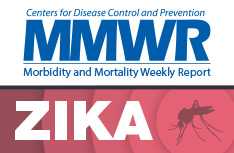Zika and Blood Transfusion
What we know
- On August 26, 2016, FDA issued revised guidance, recommending that blood centers in all states and U.S. territories screen individual units of donated whole blood and blood components with a blood screening test authorized for use by FDA under an investigational new drug (IND) application, or with a licensed test when available. Alternatively, and FDA-approved pathogen-reduction device may be used for plasma and certain platelet products.
- Most people infected with the Zika virus don’t show any symptoms, blood donors may not know they have been infected.
- To date, there have been no confirmed transfusion-transmission cases of Zika virus in the United States. However, cases of Zika virus transmission through platelet transfusions have been documented in Brazil.
Zika Virus Blood Screening
- Blood donor screening on the basis of a questionnaire, without a laboratory test, is insufficient for identifying Zika-infected donors in areas with active mosquito-borne transmission of Zika virus due to the high rate of asymptomatic infection.
- Although there is no FDA-licensed test for Zika virus, testing for Zika became available through two separate Investigational New Drug (IND) applications for blood collected in Puerto Rico and mainland United States. The tests became available on April 3, 2016 (Roche Molecular Systems, Inc.) and June 20, 2016 (Hologic, Inc./Grifols).
- Blood donations that test positive for Zika virus are removed from the blood supply.
For Blood Collection Centers and Health Departments
One of the most important aspects of blood safety is making sure donated blood does not cause harm. One way CDC plays an important role in keeping the blood supply safe is by assisting state and local health departments and hospitals in investigating reports of potential infectious disease transmission. CDC developed an Investigation Toolkit: Transfusion-Transmitted Infections (TTI) as a resource to facilitate investigating and tracking potential transfusion-associated cases of infection (e.g., by public health departments). The toolkit provides a broadly applicable framework for transfusion investigations.
- Page last reviewed: November 18, 2016
- Page last updated: November 18, 2016
- Content source:





 ShareCompartir
ShareCompartir